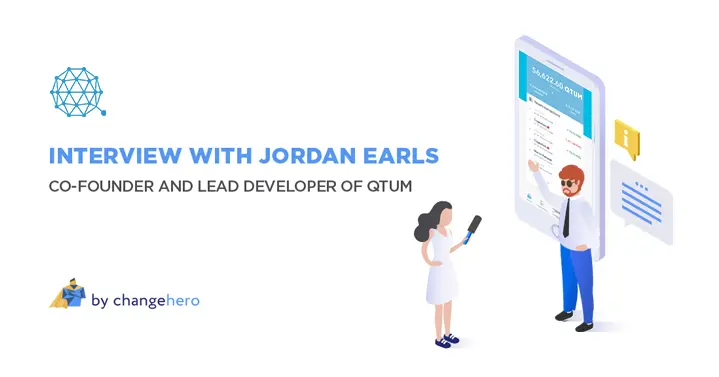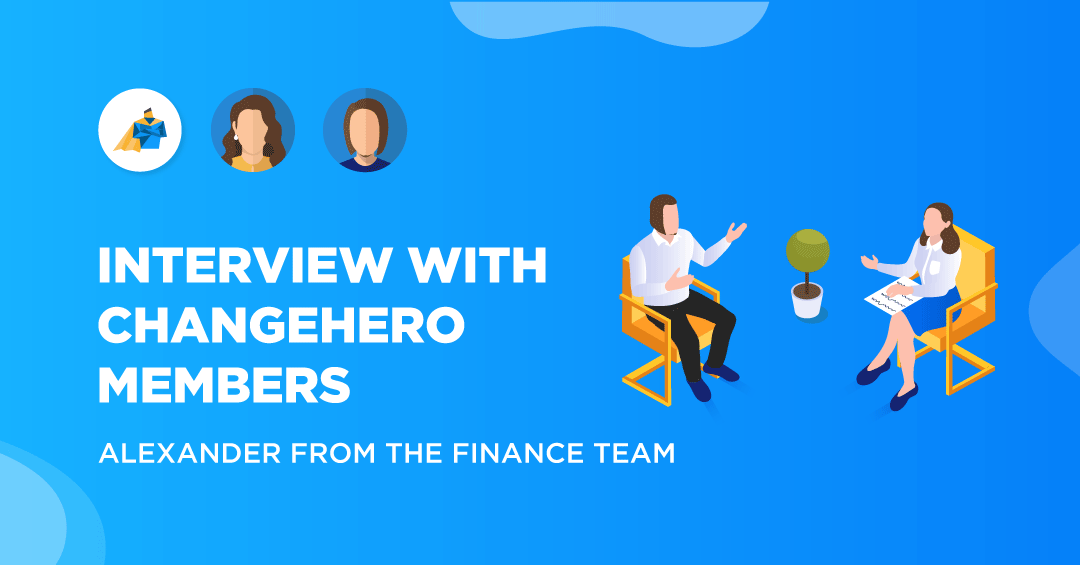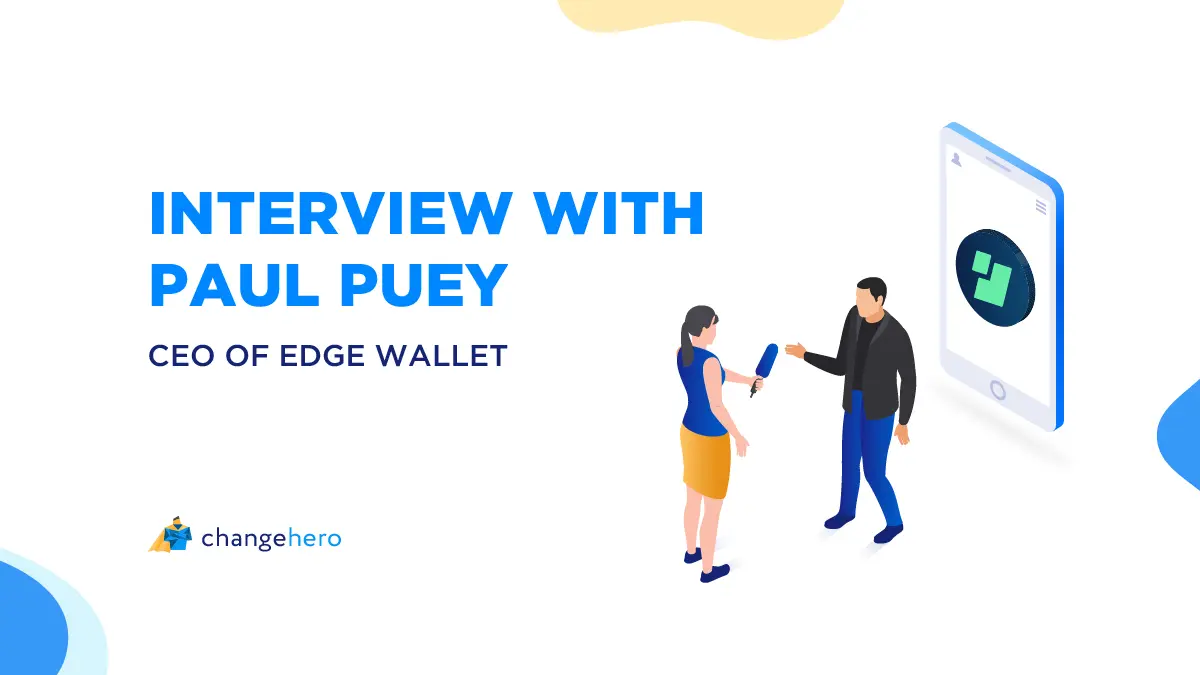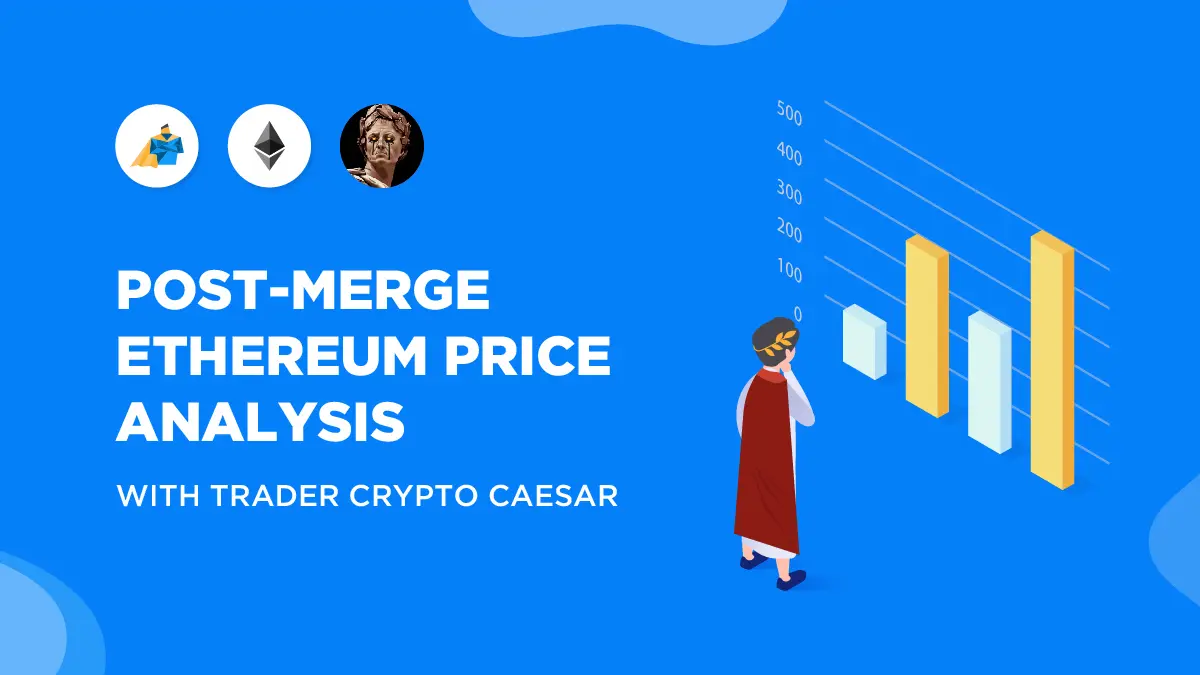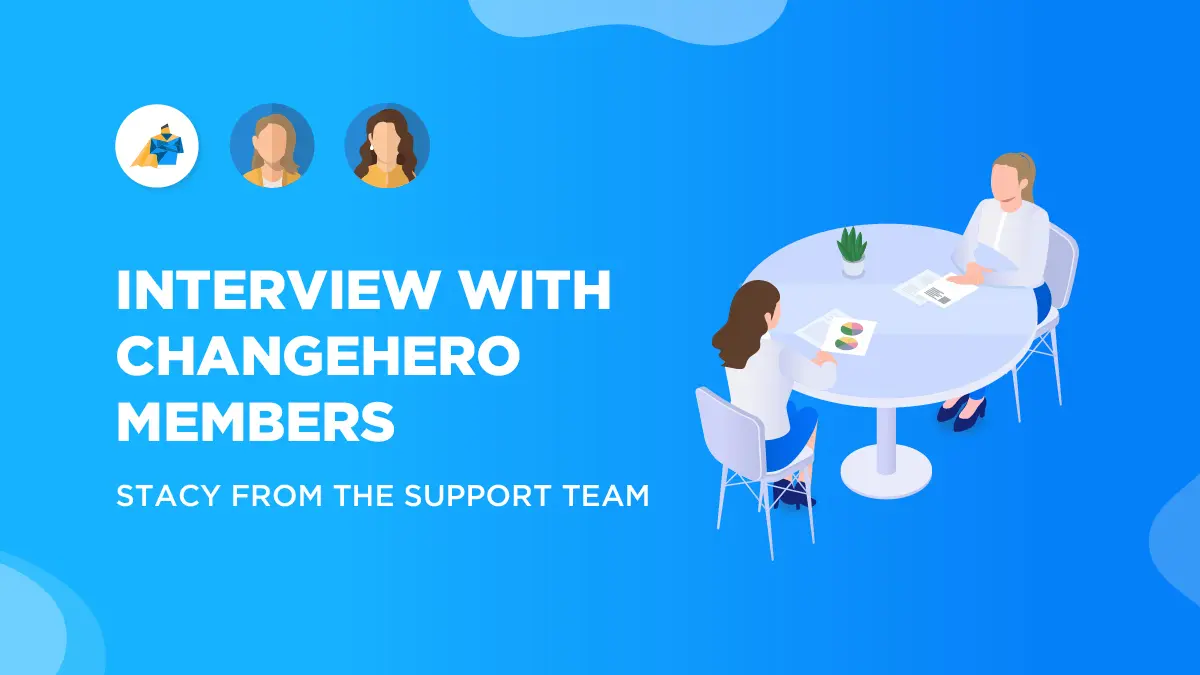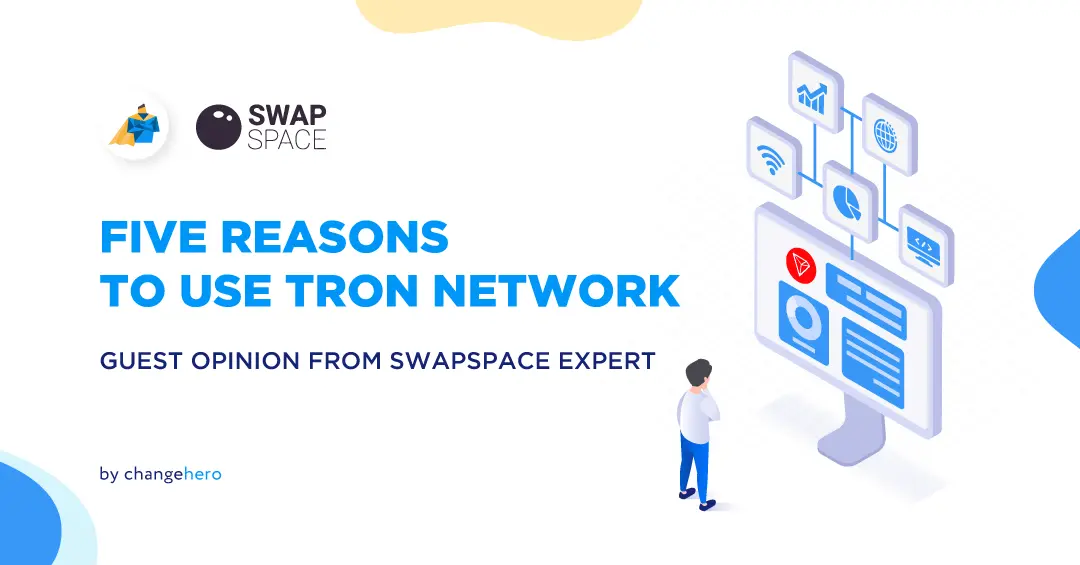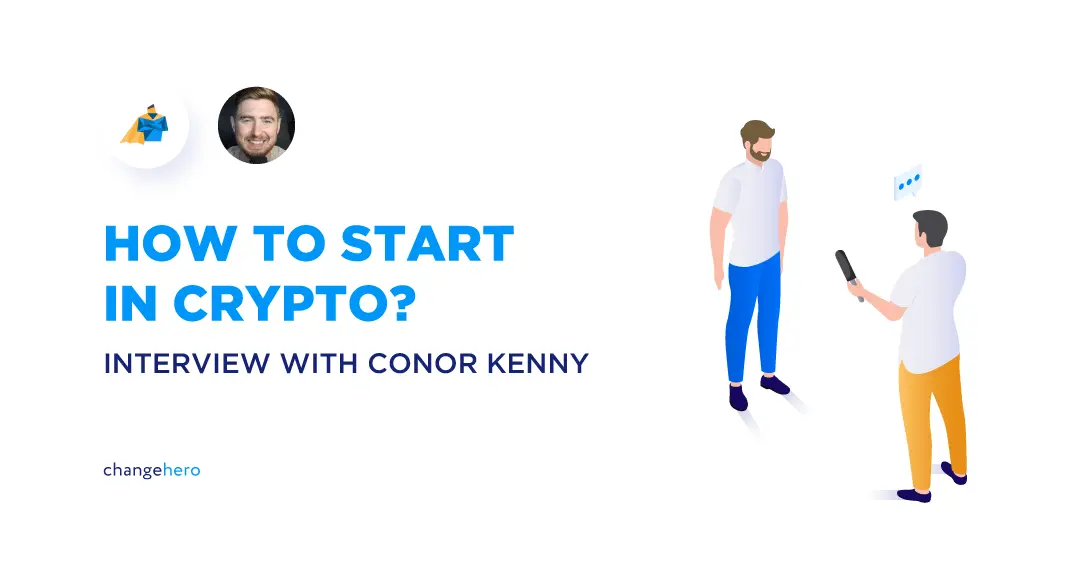Contents
The guest of today’s interview is a long-time crypto enthusiast and developer, Jordan Earls. He is known for educational and coding work but the greatest accomplishments Jordan made were for the Qtum project. The ChangeHero team asked him to tell more about its most groundbreaking features firsthand and what is planned. The talk wasn’t limited to Qtum, and we spoke about Jordan’s experience with crypto and his thoughts on its future. Enjoy!
First of all
ChangeHero: How did you come up with the name Qtum? Is there any reason behind it?
Jordan Earls: Honestly, it was a name decided just before I came on board. However, I think it’s a cool and memorable name that’s easy to build a brand around, but there’s not much technical reason behind the name Qtum. The other co-founders mentioned that the name came up due to the discovery of Gravitational Waves in late 2015, this inspired the team to use the name Quantum, later spelled as Qtum.
Let’s go back a bit
ChangeHero: We got to know that you started coding when you were a teenager. What made you get into coding and what was the first program about?
Jordan Earls: I found out about coding when my older brother left some printed out tutorial for writing HTML from his school. I followed it and thought it was awesome and went on to learn more and made a few really terrible websites. When I wanted more power than HTML could provide, I started looking at programming languages. My first real programming project though was “mplayer” a really simple media player written in the language DarkBASIC Pro. I still have “version 1.0” of the program somewhere and it was really, really bad code haha.
ChangeHero: How did you get into crypto?
Jordan Earls: I first found out about Bitcoin when Silk Road got shut down and remarked “It’s impressive that drug dealers have created their own internet currency” on my personal Facebook, but I didn’t seriously get into it until 2013 when Dogecoin was announced. I mined over my Christmas vacation on my work PC and made $100 and that instantly got my attention. Afterward I got into the mining community more and then looked more into the technical side. I even made my own cryptocurrency called Megcoin (which was obviously a failure, but it was one of the very early altcoins to get onto Bittrex!) and from there just kept learning more and more and embraced the crypto community.
ChangeHero: What was your favourite cryptocurrency before Qtum?
Jordan Earls: Dogecoin will always hold a soft spot for me, and I still talk to some of the friends I made from the Dogecoin community on a regular basis.
After Qtum
ChangeHero: How did you meet up with Patrick? Whose idea was it to combine UTXO and Smart Contracts?
Jordan Earls: We were actually introduced to each other by Mike [Palencia], another early employee at Qtum. He called in the middle of the 2016 crypto winter and talked about Patrick and Qtum’s ideas. I remember cooking when I received the message and remarked to my wife “This Chinese project wants me to work on some altcoin, it’s probably a scam but I guess I’ll hear them out.” However, when talking to Patrick I could instantly tell this was not a “shit coin”, he had real passion, and the idea he presented for Qtum instantly got my interest in the tech side. The idea he presented was “We’ll have UTXOs, Ethereum Smart Contracts, and Staking on a single blockchain”… but he was basically wanting to bring me on board to figure out how that can actually be built into a technical model. It took nearly 9 months to actually figure out how that model would end up working in the end.
ChangeHero: What does QTUM do better when compared to Bitcoin and Ethereum?
Jordan Earls: Qtum improved both Ethereum and Bitcoin by addressing their shortcomings while working on advancing their features. Qtum took the Smart Contracts concept from Ethereum and made it more flexible, easy to use while also allowing it to function on a bitcoin-based codebase with the UTXO model. From bitcoin, Qtum inherited the UTXO model as most of its codebase, this makes Qtum a very stable and secure platform, and we focused on enhancing some of bitcoin’s long-standing issues such as transaction speed and block times. Qtum is capable of reaching 70 TPS and that’s without having to go to the DGP (Decentralized Governance Protocol) which can modify blockchain features live without the need of a hard fork.
ChangeHero: Transaction fees on Ethereum have become an issue to the users. How does Qtum fix this?
Jordan Earls: We have a couple of tools to address this. Qtum blocks have much more “headroom” than Ethereum. First, our TPS is about 70 which is about 4 times Ethereum. And Qtum blocks are currently 2.0 MB, much larger than Ethereum, and can be scaled on-chain to much larger sizes. So there is plenty of space in the Qtum blocks for transactions before any need for increases.
Also, Qtum supports much more gas in these larger blocks, and has an on-chain mechanism called DGP as I mentioned to adjust gas prices if needed.
ChangeHero: Qtum recently announced Offline Staking. Could you explain it to our readers?
Jordan Earls: Sure. Qtum launched our mainnet in 2017 with Proof-of-Stake but users had to run a full node online 24/7 to participate. We introduced offline staking last August, which allows users to make a “non-custodial” address delegation (they keep full control of the coins) to an online “Super Staker” which stakes the coins for them. These users get a real-time payment when the Staker gets a Proof-of-Stake block reward for them, and they pay a small fee to the Staker. But after the address delegation, they can shut down their wallet and go offline since the Super Staker is doing the work for them. This allows for people to stake their coins while also holding them secure in cold storage such as using a hardware wallet or even a paper wallet.
ChangeHero: Decentralized Governance Protocol (DGP) is another highlighted feature of Qtum. How does it impact the network participants?
Jordan Earls: When we launched Qtum, we took a look at the pain and suffering on some other blockchains for contentious hard forks to increase the block size, etc., and decided to build in a mechanism to make “on-chain” adjustments for some basic blockchain parameters, such as block size and gas fees. This allows us to respond to changing blockchain requirements and adjust these parameters without the need for a hard fork. Basically, the community can reach an agreement and a voting mechanism allows updating these parameters through smart contracts.
ChangeHero: Are there any businesses currently building or using Qtum blockchain? If yes, what kind of a problem are they solving?

Jordan Earls: As you can see in the infographic there are many businesses and services that utilize Qtum in one way or another. We are always adding to this list with new partners and integrations as they present themselves.
A look back
ChangeHero: You have reviewed more than 100 different altcoins. Could you tell us what are the best and worst cryptocurrencies among them?
Jordan Earls: All of my reviews are pretty old so it’s hard to remember even the standouts at the time. I definitely remember the worst project being “Pharmacoin”. This was a project which had sneaked in an exploit that I missed in two separate reviews and it wasn’t until a third review that I finally determined that it had an exploit and warned exchanges and the community about it. It required me to write some custom program to emulate mining and verify how they made blocks in order to actually find the exploit. I’m still a little bitter about that project.
ChangeHero: What would you change if you were in Ethereum’s core team?
Jordan Earls: It’s hard to know exactly what I’d change without all the context that the core team has, same as Ethereum’s core team would likely feel about looking at us. However, the biggest complaint I have around Ethereum is that they tend to think too much in theoretical and academic terms, and less about how the concepts are practically used, and only recently have seemed to focus on security issues that can come with developer exposed concepts that lack “ergonomics” that make mistakes more difficult. Following the project the past few months, I’ve seen a lot more voice put toward this, but to me, it’s really late considering how difficult big changes to the EVM smart contract system are now to fix long-standing problems. The biggest and most obvious to fix is the reentrancy problem which has been a constant source of contract exploits. Even now, this is not a fixed problem and I don’t understand why it isn’t a bigger priority to fix in a way that isn’t “discouraged” by requiring higher gas costs.
ChangeHero: DeFi is trending. What are your thoughts on it? How is Qtum moving forward with it?
Jordan Earls: Yes, this first wave of DeFi is a bit of a bubble, but the promise of DeFi on blockchain, with secure transparent operations that are orders of magnitude better than central banking with fiat using SWIFT and decades-old technology, is the real motivation. I think this is just the first wave for DeFi, and the tools and algorithms built out will give a great future for novel and robust blockchain applications. At Qtum we are building towards DeFi with our initiative for faster block times and also have a DeFi grant program to encourage community DeFi projects. Our EVM can run Ethereum smart contracts basically unchanged, with faster TPS, and working on faster block times, we think Qtum is a great fit for DeFi applications.
Rapid round
ChangeHero: What is your favourite video game?
Jordan Earls: Tough one! Factorio is always kind of my long term game, but I’ve been having a lot of fun with Hollow Knight recently… On the other hand, Kerbal [Space Program] is by far the game I’ve played the most
ChangeHero: Which video game character would you compare Satoshi with?
Jordan Earls: Uhh, not really sure any comparison would do him justice!
ChangeHero: Coding or Photography?
Jordan Earls: Both! Coding to express my logical creativity, while photography to express my artistic creativity. I need an output for both!
ChangeHero: Bitcoin or Ethereum?
Jordan Earls: Very tough. Probably Bitcoin for stability reasons.
About Future
ChangeHero: We got to know that you are working on the QRC protocol to issue tokens. Could you tell us a bit about it? Can we expect qBTC and qETH soon?
Jordan Earls: I believe that with the increasing footprint of Qtum in the DeFi ecosystem, we will be able to see these and several other tokens in the next few months. We’re working directly on making this possible and accessible for the community
ChangeHero: How did Qtum do in 2020? What can we expect in 2021?
Jordan Earls: 2020 was a tough year for everybody, and it was a year where Qtum focused on what was more important to build for the platform and the project in general, 2021 is where this hard work from 2020 will pay off introducing several new and exciting integrations and partnerships, shorter block times, Metamask support for Qtum, and finally we have a solid roadmap for the Neutron project.
ChangeHero: You are the Co-chair of Smart Contracts Alliance and have tons of experience in programming. Could you suggest to youngsters and beginners some resources and where to start building on the blockchain?
Jordan Earls: Find a fun community, pick up a book, and start writing a project! Any project, a dice game, a simple DEX, literally anything that strikes your interest. It doesn’t need to be practical or even useful, but write code while you learn and improve it as you learn more!
That was a fun and insightful talk, wasn’t it? We sure had fun and hope you enjoyed the interview, too! Let us sign off by wishing the Qtum team and community further success.
By the way, we have more Qtum-related content in our blog, where we publish guides, news and interviews. To stay tuned to the latest updates, don’t forget to follow ChangeHero on social media: Twitter, Facebook, Reddit and Telegram.

